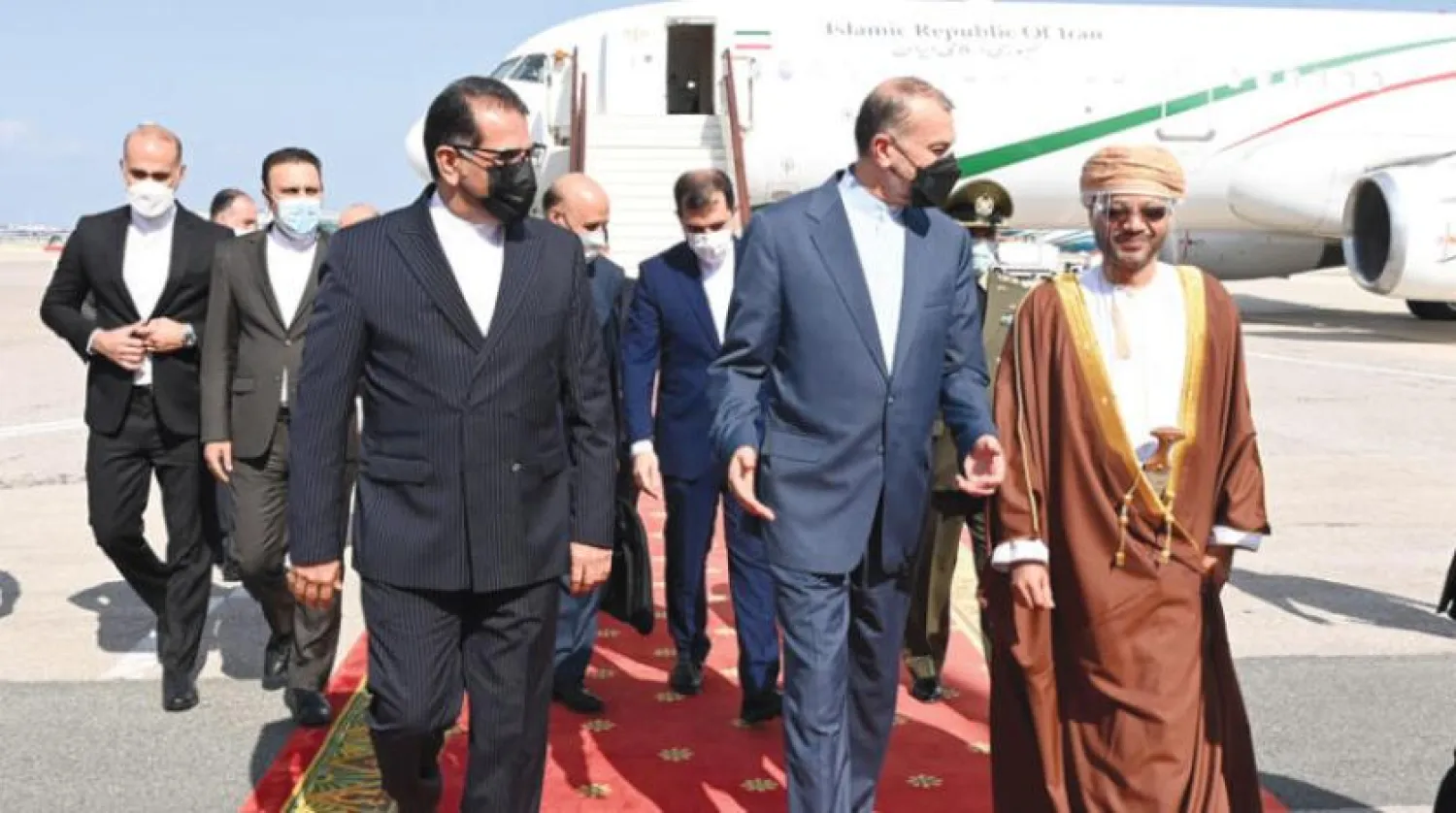Iranian Foreign Minister Hossein Amir Abdollahian said on Monday that Tehran hopes to develop and strengthen relations with the Gulf States.
He was speaking in Muscat, on his first visit to a Gulf country after taking office in September.
Abdollahian conveyed the greetings of President Ibrahim Raisi to Sultan Haitham bin Tariq, the Oman News Agency reported.
It added that a meeting between Omani Foreign Minister Sayyid Badr bin Hamad Al Busaidi and his Iranian counterpart touched on the means to strengthen bilateral relations in various fields.
The two sides also reviewed some regional and international issues of common interest, including the Vienna talks on the Joint Comprehensive Plan of Action (JCPOA).
“We hope to strengthen ties with the Gulf States and achieve progress in our relations with them, as happened with our neighbors in the North,” the Iranian minister was quoted as saying.
He continued: “We are working to activate the trade route between Turkmenistan, Uzbekistan, Iran and the Sultanate of Oman, and we focus on strengthening relations with neighboring countries.”
Abdollahian was accompanied on his one-day visit to Muscat by a delegation from the Iranian Foreign Ministry. He also met with Fahd bin Mahmoud Al Said, Deputy Prime Minister for Omani Cabinet Affairs.
IRNA, Iran’s official news agency, reported that the foreign minister’s talks focused on means to strengthen bilateral relations in various political, economic and cultural fields, as well as exchanging views on regional issues.
For his part, Iranian Foreign Ministry spokesman Saeed Khatibzadeh said that Abdollahian’s trip to Muscat “comes at the invitation of his Omani counterpart,” and would be followed by a visit to another country.
On Jan.3, the Iranian and Omani foreign ministers underlined, during a telephone conversation, “continued cooperation on bilateral and international issues,” the Oman News Agency reported.









